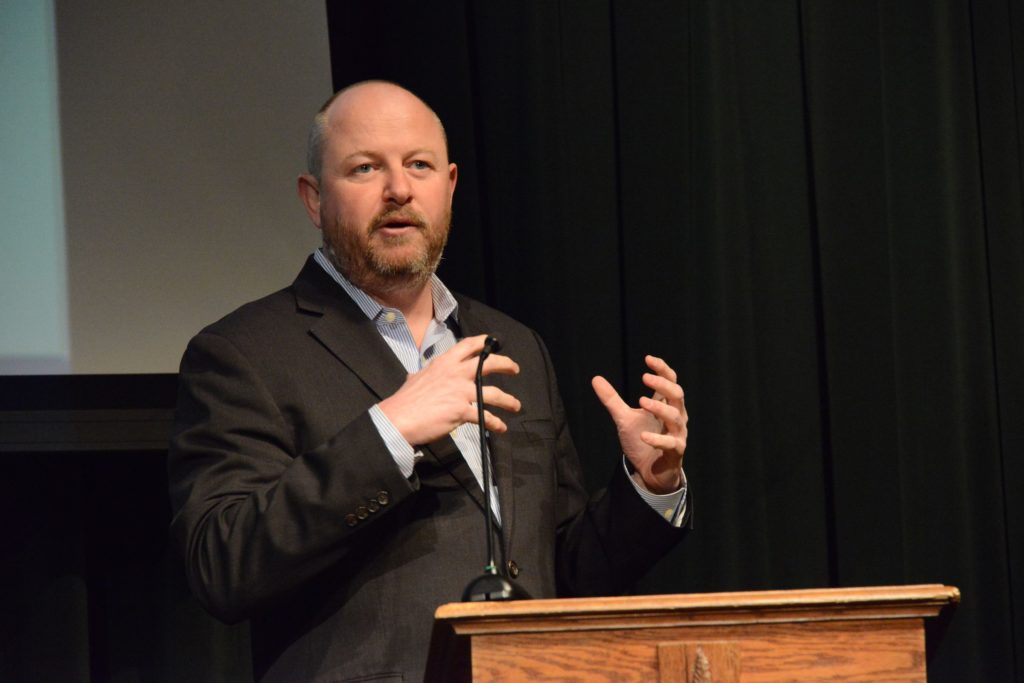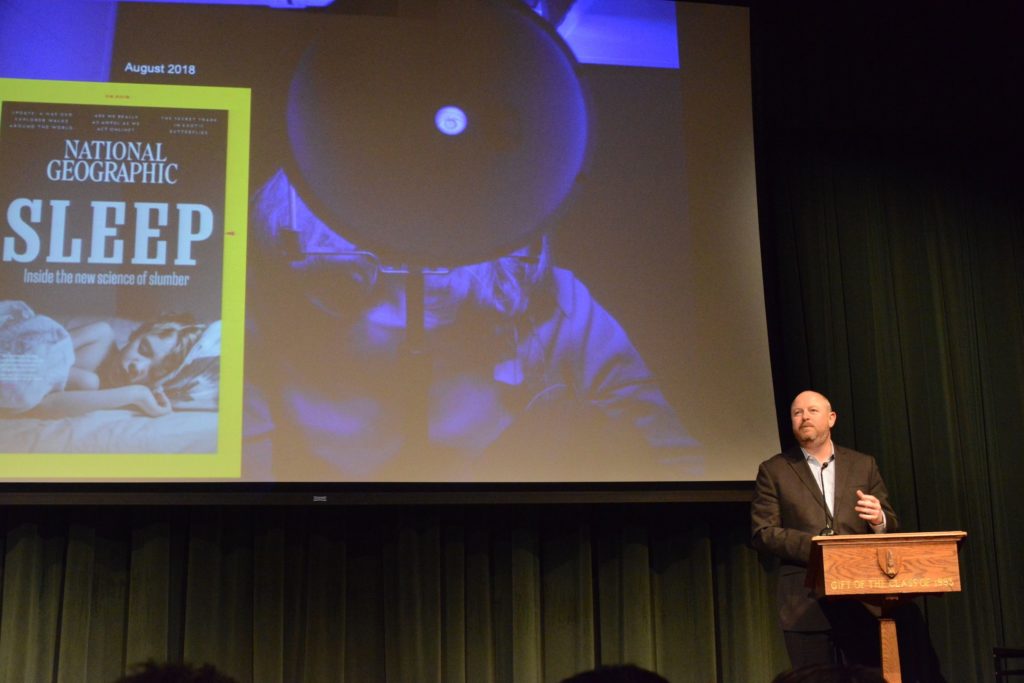Dr. Steven Lockley Wraps Up Wellness Series With Sleep Health
Bats spend 19 hours each day sleeping. Giraffes sleep less than five. Dolphins only ever sleep with half their brain; the other half remains active so they can continue swimming while they rest. Adolescent boys… sleep less than they should.
On April 11, Roxbury Latin welcomed Dr. Steven Lockley to present the final Hall in the school’s new series on Health and Wellness. Dr. Lockley is a neuroscientist in the Division of Sleep and Circadian Disorders at Brigham and Women’s Hospital and Associate Professor of Medicine in the Division of Sleep Medicine at Harvard Medical School. He has studied circadian rhythms and sleep for 25 years and has published more than 150 original reports, reviews, chapters, and editorials. His book Sleep: A Very Short Introduction was published in 2012. He currently advises NASA on how to alleviate jet lag for astronauts.
Dr. Lockley shared with the RL community theories for why we sleep, characteristics of our stages of sleep, and findings from a variety of studies on the ideal amount of sleep. There are many biological and social factors affecting sleep in adolescents, he explained, including a naturally evolving circadian rhythm, evening lights, school start times, and caffeine. But the impact of poor sleep can be quite harmful, causing poorer mental health, decreased academic and athletic performance, impaired immune systems, and increased risk of heart disease or diabetes. Studies even show that sleep deprivation is more harmful than starvation.
If sleep is so important to health, memory, and performance, how do we ensure we get more hours each week? Dr. Lockley suggested that light can be a powerful tool at our disposal. Blue-enriched light tends to keep us awake; therefore, switching to red-enriched light as evening approaches can make it easier to fall and stay asleep. This is also why it’s important to avoid staring at screens before bedtime, Dr. Lockley explained. Eliminating—or at least monitoring—caffeine intake can also enhance sleep. When possible, consuming smaller doses of caffeine more often allows for better sleep than one large dose at the beginning of each day.
A lively Q&A after Dr. Lockley’s talk spurred conversations about sleepwalking and night terrors, polyphasic sleep cycles, and lucid dreaming. And the conversation did not end once Hall was over; boys, faculty, and staff were discussing their own sleep habits for the rest of the day. If you are interested in learning more about healthy sleeping, you can visit the Sleep and Health Education website at understandingsleep.org


